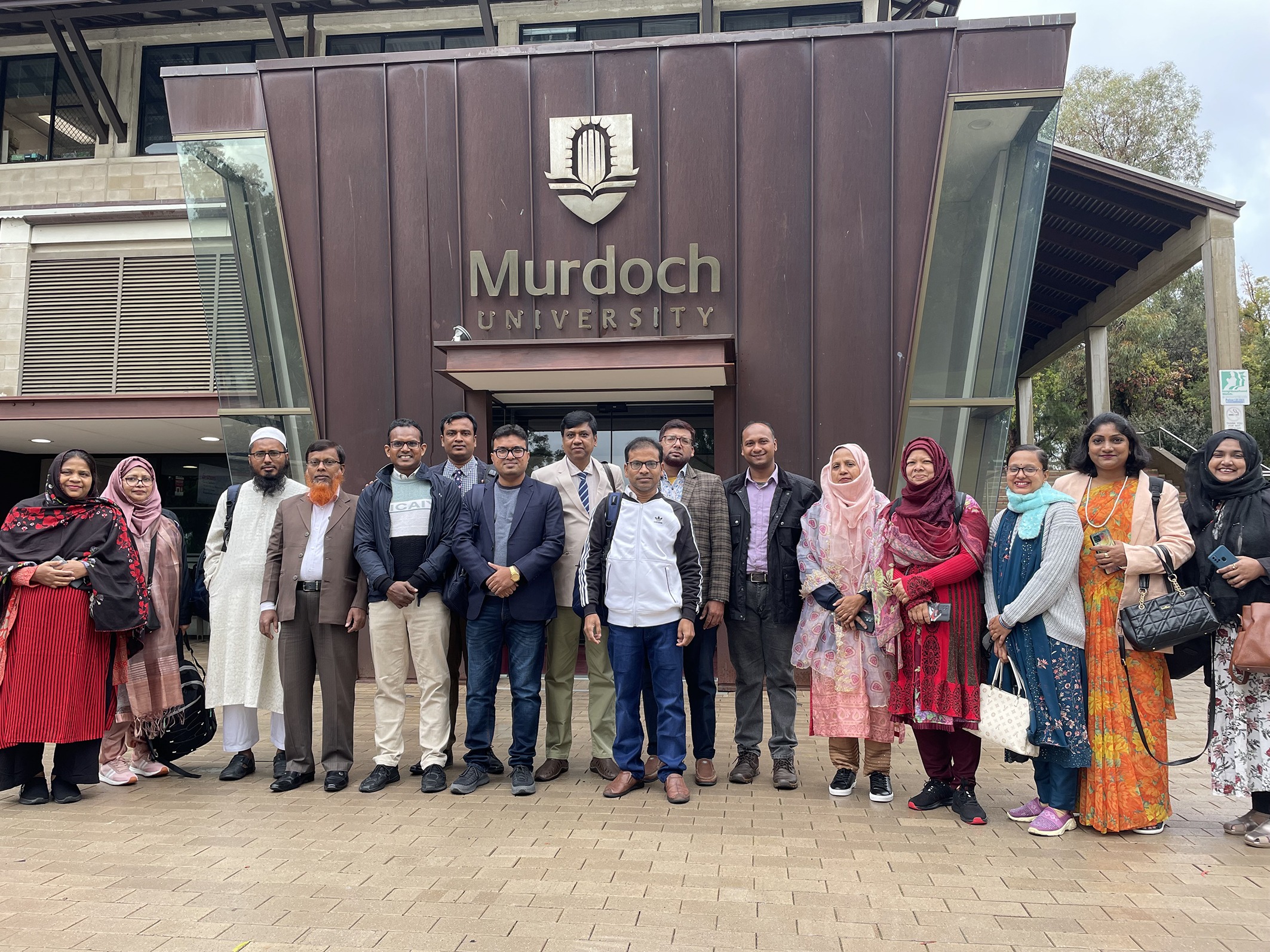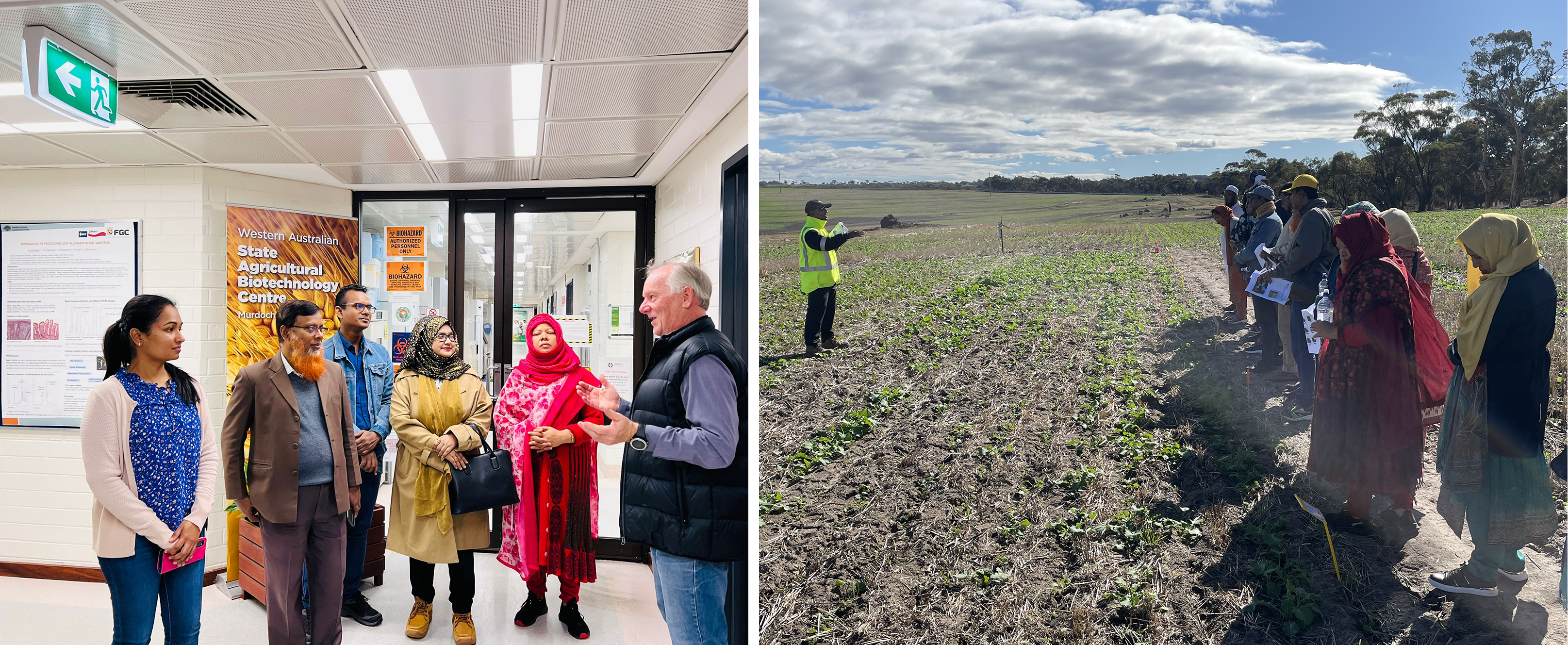

Writing for impact in peer-reviewed international journals
October 26, 2023

The Crawford Fund’s Western Australia Committee recently supported “Writing for impact in peer-reviewed international journals” training for PhD students from Bangladesh.
Two ACIAR projects in Bangladesh have been supporting 16 PhD fellows since 2017-18. The PhD fellows are scientific officers within the Bangladesh Agriculture Research Institute, Bangladesh Sugar Crop Research Institute and the Soil Resource and Development Institute. The scholarships for these PhD fellows are paid by Krishi Gobeshona Foundation (KGF) as a contribution towards the ACIAR projects.
“Supporting these ACIAR projects, and these PhD students from key Bangladeshi institutes is contributing significantly to investment in capacity development in the areas of soils, agronomy, plant pathology, entomology, plant breeding, and agricultural economics,” said Professor Richard Bell from Murdoch University who jointly led the training initiative with Professor Ed Barrett-Lennard of Murdoch University/Department of Primary Industries and Regional Development (DPIRD).
The participants were asked to submit a draft manuscript and they worked on improving that manuscript during the course.
Professors Bell and Barrett-Lennard were joined by tutors Dr Miaomiao Cheng, Dr Wendy Vance and Dr Mike Wong and the programme was co-ordinated by Dr Karthika Pradeep of Murdoch University. Dr Mohammed Mainuddin of CSIRO, Land and Water, Canberra also joined the participants for two days and accompanied them on the field visit to the Western Australian wheatbelt.
“In the writing course, formal sessions outlined the characteristics of published papers and included in-depth analysis of two chosen relevant peer-reviewed journal articles. The participants were then encouraged to revise their own papers based on the knowledge gained from those sessions,” he said.
“Each participant was then asked to read and critically review some of the submitted manuscripts. This culminated in each participant receiving feedback on how to improve their manuscript from one of the course tutors and two of the other course participants,” he explained.
A wrap-up session evaluated the learning and discussed the process associated with submission review and addressing feedback of manuscripts.

Along with the writing, the participants had an opportunity to visit various labs in their relevant research areas including CSIRO Floreat, UWA, Curtin University, State Agricultural Biotechnology Centre, Western Crop Genetics Alliance Group, Land Management Group at Murdoch University.
They also visited the Western Australian wheatbelt to see some broadacre agriculture looking at various field trials at Meenar followed by visits to York and Brookton.
“The participants had an opportunity to attend a RAID (Researchers in Agriculture for International Development) networking event which included presentations from Dr Hayley Norman (CSIRO Perth), Dr Gaus Azam (DPIRD Perth) and Dr Mohammed Mainuddin (CSIRO Canberra), covering their agricultural research careers as well as their research work in international development. The event involved more than 40 participants joining from various organisations across Western Australia,” said Richard.
On the final day, Professor Peter Davies, Pro Vice Chancellor, Food Futures Institute presenting the participants with their course certificates. He emphasised the importance of translation research in agriculture and invited them to maintain collaboration with Murdoch University in the long term.
“The training participants were completely satisfied with the programme provided and they are confident to use the knowledge gained during the course in writing for impact in the future. The laboratory visits and meeting the local research experts in their field gave the participants an insight of cutting-edge research happening, laboratory facilities available and opportunity for future collaboration,” Richard concluded.




